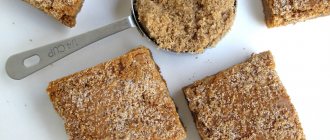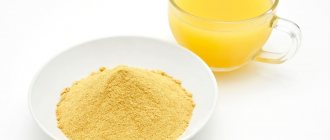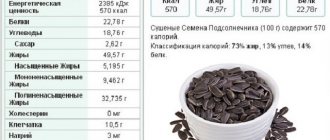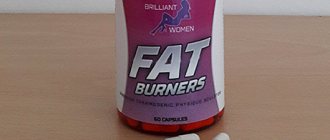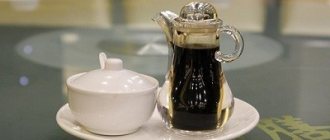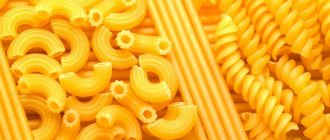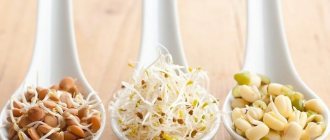Sugar is gradually eliminated from the human diet. This is due to both the personal desire of the user and the need due to deteriorating health. One way or another, it can be difficult to completely give up sugary drinks and dishes, so manufacturers offer an alternative - sugar substitutes. The main thing is to choose them correctly, otherwise there is a high risk of causing even more harm to the body.
Manufacturers today offer a fairly wide range of sweeteners, and it’s not so difficult to get confused about them. We offer a ranking based on a selection of preferred and safe substitutes.
Benefits and harms
First, we’ll tell you in more detail about the benefits and harms of using substitutes. The substitute is safe for the figure. By consuming it, you are unlikely to gain excess weight, your shape will be completely preserved. Liquid substitutes are suitable for people suffering from thinning tooth enamel and progressive caries, because it is known that sugar has a negative effect on the oral cavity and directly on tooth enamel.
Harm is conventionally divided into two types:
- obesity;
- poisoning of the body.
Obesity begins due to uncontrolled consumption of sweets. A person thinks that sweeteners are safe, and he increases the dose too much. In addition, not all sweeteners have a natural composition, and additives accumulate in the body, poisoning it. This becomes an impetus for other dangerous diseases.
Why are sugar substitutes needed?
Sweeteners can be natural (for example, xylitol, sorbitol, stevia) and artificial (aspartame, sucralose, saccharin, etc.).
They have two beneficial properties: they reduce the calorie content of food and do not increase the concentration of glucose in the blood. Therefore, sugar substitutes are prescribed to people who are overweight, have diabetes or have metabolic syndrome. How to give up excess sugar
Tea with sweets is a common ritual. But the amount of sugar in the diet must be reduced - it leads to excess weight. Find out how you can control your sugar calories.
Some sweeteners
have no calorie content
, which makes them attractive to those trying to watch their weight. The taste properties of many sweeteners are hundreds and even thousands of times superior to sugar. Therefore, fewer of them are required, which greatly reduces production costs. The beginning of the use of sugar substitutes in the first half of the twentieth century was associated mainly with their cheapness, and the reduction in calorie content was initially a pleasant, but secondary factor.
Kinds
Sweet substitutes can be classified into several large groups:
- In terms of sweetness, since almost all sweeteners are superior to sucrose in this indicator.
- Depending on the calorie level. This factor is important for people suffering from diabetes.
Substitutes are also divided into two groups according to a different criterion. The first group includes true substitutes that take an active part in the body's metabolic processes. They are used in accordance with the instructions, observing various precautions. The second group is intense sweeteners. They are much sweeter than sucrose, and have no effect on the body, metabolism or metabolic processes.
What is a sweetener
The time of abundance that came with the advent of the 20th century has its own characteristics. An increasing amount of sugar, as well as sugar-containing products, is appearing on grocery store shelves. Unlimited access to sweets, reasonable prices and, of course, tempting taste make them an integral part of the daily diet of each of us. However, lately, more and more often, when reading the composition on sweet packaging, you can come across so-called sugar substitutes, indicated directly or hidden under the E label. What are sweeteners?
Alas, the pleasure of “eating something sweet” has its own, impressive price. Here are just some of the adverse consequences of systematically consuming too much simple sugars: excess weight, decayed teeth, inability to adequately control diabetes or prediabetic conditions, and the development of other life-threatening diseases.
Because of this, as well as for economic reasons, the demand for the sugar substitutes mentioned above is now steadily increasing. Let's try to understand them: what are they and what are they?
The list of sugar substitutes known today is divided into two groups - with and without nutritional value.
The first, belonging to the cohort of sugar alcohols, provide a certain, although less than sucrose, amount of calories - mostly due to the lower rate of absorption. Manufacturers often add these substances when producing food products and drinks labeled “sugar-free.”
These include mannitol, lactitol, sorbitol, maltitol, xylitol and trehalose. These sugar substitutes are not digested by oral bacteria and therefore do not contribute to the formation of tooth decay. However, due to their low absorption, they can cause intestinal discomfort - increased gas, bloating, diarrhea - if you frequently consume foods containing these sweeteners. Their sweetness is estimated to be 25-100% of that of simple sugar.
The latter are intense hypocaloric sweeteners that add a sweet taste to foods or carbonated drinks without actually having any significant calorie content. Moreover, their sweetness can be hundreds of times greater than sucrose, so these sugar substitutes are consumed in extremely small doses. Many of them are made in tablet form, soluble in water.
What hypocaloric sweeteners exist?
The most popular among them are saccharin, stevia, aspartame and sucralose. These sugar-replacing products have won the hearts of industrial magnates around the world due to their low cost, coupled with the ease of their integration into various production processes.
At first, the public also welcomed the use of sakhzam by manufacturers, but later international scientific teams, after conducting relevant research, announced a list of rather serious side effects of hypocaloric sugar substitutes, which is why the ardor of their many supporters immediately cooled down.
Moreover, it is still not known for certain what side effects there are, for example, from the same aspartame, since it turned out that the EFSA (European Food Safety Authority), when agreeing on its admission to production, simply ignored numerous research results indicating the danger of this sugar substitute for health.
However, we will dwell in more detail below on what threats there are from the use of sugar substitutes, but for now we will consider their main characteristics in a convenient tabular form.
TOP 7 best sugar substitutes
Finally, we’ll tell you which substitutes were included in our rating. These are the following products:
- Fructose Novasweet;
- Erythritol Bionova;
- Sorbitol Novasweet;
- Stevia Novasweet;
- Sucralose Milford;
- Aspartame Novasweet;
- Milford Cyclamate.
Next, we will dwell in more detail on the description of each of the highlighted products, listing their advantages and disadvantages, characteristic features and features. In addition, we will present reviews from users who have managed to evaluate sugar substitutes on their merits and objectively. We hope the information presented in the article will be useful. We wish you pleasant reading!
Fructose Novasweet
Fructose is the best sugar replacement option. The product has a pleasant taste and is found naturally in fresh vegetables and fruits. Fructose is almost 2 times sweeter than sugar and is well absorbed in the body. The low glycemic index is about 19 units, making fructose safe for consumption by people with diabetes. Fructose has found wide application in enhancing fruit and berry tastes; preserves and jams are prepared with it.
| Property | has a low glycemic index, the most popular sweetener, natural |
| Calorie content | 0 |
| A country | Russia |
Price: from 169 to 199 rubles.
pros
- suitable for use by diabetics;
- absorbed by the body without the participation of insulin;
- It has a pleasant taste and is economical in consumption, since fructose is 2 times sweeter than sugar.
Minuses
- not found.
Fructose settled on shelves a long time ago. I don’t remember the last time I used regular sugar. We prepare everything with it - drinks, dishes and desserts. The baked goods turn out great. I definitely recommend purchasing!
sugar substitute Fructose Novasweet
Erythritol Bionova
Erythritol is otherwise called melon sugar. It is a relatively new sweetener that has gained popularity recently. Its features are that Erythritol does not increase blood glucose levels and is safe for use by diabetics. Energy value is 0 kcal. In reviews, users note that erythritol is great to add to baked goods, but it should be remembered that the sweetness of the substitute is lower than that of real sugar, which means the consumption of the product increases.
| Manufacturer country | Russia |
| Peculiarity | no calories, does not increase blood sugar levels |
| Calorie content | 0 |
Price: from 297 to 313 rubles.
pros
- absence of foreign taste and aftertaste;
- availability for purchase in stores;
- ease of use;
- safety.
Minuses
- high consumption, especially in the preparation of sweets and desserts.
Not a bad substitute, we used other types before. In general, I don’t see any difference from the others, except that the consumption is much higher, since the sweetness in small doses is practically not felt. We recommend it to athletes and diabetics, since the substitute does not affect metabolism and blood sugar levels.
sugar substitute Erythritol Bionova
Sorbitol Novasweet
Sladis Sorbitol with inulin is a 100% natural sugar substitute, does not contain GMOs, dyes, preservatives, or additives. It contains a natural sweetener (99%) and a plant extract of prebiotic dietary fiber inulin (1%). Quickly dissolves in water of different temperatures, retains sweetness and taste in case of heat treatment. Sorbitol is a common sweetener used in hot drinks and baked goods. Use leads to an improvement in intestinal microflora and an improvement in the general condition of the user. The consumption is quite large, since the level of sweetness is low - 30-35% lower than that of real sugar.
| Main characteristics | natural composition, no GMOs and dyes |
| Production | Russia |
| Value, in kcal | 0 |
Price: from 87 to 115 rubles.
pros
- long shelf life - 36 months;
- pleasant taste and no aftertaste;
- low glycemic index – no more than 9 units.
Minuses
- The packaging is used up quite quickly.
A good sugar substitute, add to drinks, cereals, cocktails. Guests don’t even notice that they drink coffee and tea without real sugar. Relatively inexpensive, we didn’t notice much consumption, probably because we don’t use it that often. I recommend it to diabetics and vegetarians, as well as people who adhere to proper nutrition and watch their figure.
sugar substitute Sorbitol Novasweet
Stevia Novasweet
A natural replacement for sugar without calories - this is what manufacturers say about the product, and this is also indicated on the packaging. It is the best natural premium sugar substitute. Consumption does not cause any discomfort or side effects; the main advantage is the absence of calories. It is worth keeping in mind that the substitute has a rather specific herbal taste and leaves an identical aftertaste. It is acceptable to use this substitute for diabetes mellitus, since its glycemic index is zero. The substitute is added to drinks (cold and hot) and to various dishes.
| A country | Russia |
| Energy value, kcal | 0 |
| Peculiarity | premium substitute, glycemic index=0 |
Price: from 350 to 402 rubles.
pros
- convenient plastic packaging 200 g;
- no negative consequences of use;
- zero calories;
- economical packaging - lasts a long time.
Minuses
- the grassy aftertaste is not to everyone's liking.
A good substitute, inexpensive and high quality. We use it little by little and as needed, mainly adding it to pies and desserts. We drink drinks without sweet additives. It is economical to use, one package lasts a long time. The substitute itself is packaged quite well and stored in a dark, dry place. Probably the best substitute for sugar that exists, we recommend it!
sugar substitute Stevia Novasweet
Sucralose Milford
If you have ideas about switching to sports nutrition, then Sucralose is the best option for a sweetener. It is 600 times sweeter than regular sugar, safe, and the energy value is 0 kcal! A universal substitute is used in sweetening drinks - tea and coffee, cocktails, and is also added to cereals. You can easily adjust the dosage yourself - it all depends solely on your taste and preferences. Contains 100% sucralose and does not contain gluten or other additives. The substitute is used by diabetics and vegans, vegetarians and athletes.
| Manufacturer | Russia |
| Sweetener property | suitable for sports nutrition |
| Value, in kcal | 0 |
Price: from 1390 to 1450 rubles.
pros
- glycemic index = 0;
- versatility of using sucralose;
- 100% natural and safe composition;
- does not cause the formation of caries and thinning of enamel.
Minuses
- not found.
The product is a little expensive when compared with other sweeteners, but it also has much more advantages. It is safe for children and adults, does not cause discomfort, and has a sweet taste. Don't overdo it, otherwise it will become cloying. Overall, a worthwhile investment because just a little bit is enough to sweeten drinks and dishes. I definitely recommend it for its versatility, hypoallergenicity and safety for different categories of citizens (diabetics in particular).
sugar substitute Sucralose Milford
Aspartame Novasweet
The drug from a domestic manufacturer offers low calorie content and a high level of sweetness. The flavor develops more slowly than sugar, but lasts much longer. During heat treatment and at high temperatures, Aspartame tends to deteriorate; it is also not recommended to use the sweetener in the manufacture of jams, preserves, and baked goods. But it is good at sweetening sai and coffee, cocktails and ready-made dishes.
| Characteristic | convenient production format, compliance with quality standards |
| Number of calories | 2 |
| Production | Russia |
Price: from 87 to 99 rubles.
pros
- not bitter, pleasant to the taste;
- 1 tablet is equal to 1 spoon of sugar;
- light aftertaste;
- availability of sweetener;
- large package – 650 tablets.
Minuses
- poorly soluble in cold and warm water.
I purchased aspartame after deciding to eat healthier and give up sugar. Yes, and sports appeared in life, it was necessary to “kick” the habit. I'm happy with the purchase: the product is relatively inexpensive, large packaging, good taste. It does not appear immediately, but then it lasts for a long time and has an aftertaste. Overall satisfied.
sugar substitute Aspartame Novasweet
Cyclamate Milford
Considered one of the best synthetic sugar substitutes. Widely used in sweetening food products, both drinks and medicine. The daily dose limit is 10 mg, since cyclomate is not absorbed by the body, and there is a high risk of developing diseases and negative reactions. The calorie content stopped at 20, don’t worry about possible excess weight - you definitely won’t gain it by using a sweetener from the company in question.
| Energy value, kcal | 20 |
| A country | Germany |
| Product Feature | best synthetic substitute |
Price: from 76 to 106 rubles.
pros
- low calorie content – 20 kcal;
- used as a sweetener for drinks and medicines;
- compliance with safety and quality standards;
- pleasant sweet taste;
- rapid dissolution in water.
Minuses
- is not absorbed by the body, minimal doses are required.
Sweetener appeared in my life a long time ago, as soon as my child was diagnosed with diabetes. I can’t say that I noticed any difference between sugar and the substitute, but the second one is several times more useful. Use in moderation, in accordance with the instructions.
sugar substitute Cyclamate Milford
Sugar substitutes - short-term benefits, long-term harm
Start here -
I.
The production of artificial sugar substitutes has increased manifold over the past twenty years. People are extremely interested in low-calorie, but at the same time habitually sweet foods.
Artificial sugar substitutes are consumed:
- diabetics because they do not increase blood sugar,
- wishing to lose weight because they do not contain calories,
- absolutely healthy people with normal weight, believing it is “self-care” or because “others do it”,
- those who noticed that after drinking tea with a substitute you don’t have to wash the cup.
- Saccharin - “Sweet and Low”, “Sweet Twin”, “Sweet’N Low”, “Necta Sweet”.
- Aspartame - “Nutrasweet”, “Equal”, “Sugar Twin”.
- Acesulfame K – Sweet One”, “Sunet”.
- Neotame - “Newtame”.
- Sucralose - “Splenda”.
- Steviol glycoside - Truvia, PureVia, Enliten.
- Advantame.
- contains no calories
- does not have an immediate effect on blood sugar levels
- does not promote dental caries
- and at the same time very sweet.
- Sorbitol, xylitol, maltitol, mannitol, isomalt, erythritol and lactitol are carbohydrates, a hybrid of sugar and alcohol.
- Found naturally in small quantities in fruits and fermented foods. Synthetic ones are produced for general consumption.
- Used in the confectionery industry: candies and baked goods (xylitol), in toothpastes, as well as in vitamin preparations, medicinal mixtures, drinks and chewing gum.
- The glycemic index is very low, the effect on blood sugar is negligible.
- Calorie content is lower than that of simple sugars - on average 2.5 kcal per 1 gram.
- Less sweet than fructose.
- Xylitol and sorbitol have a minty flavor - many people like a pleasant chill in the mouth.
- When exceeding 10-20 gr. per day can have a laxative effect, as well as cause gas and bloating.
- High-intensity sweeteners and energy balance. Physiol Behav. 2010 Apr 26;100(1):55-62.
- Artificial sweeteners induce glucose intolerance by altering the gut microbiota. Nature, 20143.
- "Gut microbiota and metabolic syndrome" World J Gastroenterol. 2014 Nov 21; 20(43):
- “Soft Drink Consumption and Risk of Developing Cardiometabolic Risk Factors and the Metabolic Syndrome in Middle-Aged Adults in the Community” Circulation. 2007;116:480-4885.
- “Fueling the obesity epidemic? Artificially sweetened beverage use and long-term weight gain." Obesity (Silver Spring). 2008 Aug;16(8):1894-9006.
- “Researchers ID biomarker for weight gain, fat-mass growth” Cornell chronicles
- “Gut microbiota controls adipose tissue expansion, gut barrier and glucose metabolism: novel insights into molecular targets and interventions using prebiotics.” Benefit Microbes. 2014.
- "Artificial Sweeteners May Change Our Gut Bacteria in Dangerous Ways." Scientific American, April 2015
Consumers are mainly interested in two aspects of sugar substitutes: safety and how much they need to eat to lose weight.
Sugar substitutes can be divided into two categories:
1) high intensity
2) low-calorie.
High intensity sweeteners (IntensiveSweeteners) are hundreds and even thousands of times sweeter than table sugar. A tiny amount of IS is required to sweeten a dish or drink.
In the USA, the following supersweet substances are currently recognized as safe for human health (GRAS - Generally recognized as safe):
You can learn more about their properties and safe doses here.
All substitutes, except stevioside, are synthetic. Stevioside is a substance isolated from the leaves of the South American stevia plant, but has all the properties of synthetic substances and is 400 times sweeter than sugar. Stevia itself has not yet been tested for safety, but owners of private houses are already growing it in their garden plots.
So, a serving of intense sweeteners:
And another category:
Low-calorie sugar substitutes
Polyols or sugar alcohols
Read more about sugar alcohols here.
For some, however, sugar substitutes cause headaches, nausea, and leave an unpleasant taste in the mouth. There are also those who avoid them because they trust only products that were on the menu of a millennial man, and not those that appeared in laboratories ten years ago.
***
“Desirable sweetness, but without calories,” thinks the incredulous buyer. - Too good to be true... There must be some kind of catch? Or maybe they are actually harmful? After all, it’s not for nothing that they are not recommended for children, pregnant women and nursing mothers... They write that this is so, just in case - there is not enough data to confirm their safety for these population groups. But who knows?
Safety
At the moment (I emphasize - at this time), there is no irrefutable evidence of the harmful effects of artificial substitutes on health.
From time to time, scientific and medical resources present experiments with the conclusion that sugar substitutes can cause migraines, depression, abdominal pain and insomnia. There are also more serious accusations: cancer, lymphoma, anemia, Alzheimer's disease, etc. The research results are contradictory: in one experiment on mice the risk is confirmed, in another - not.
The next review of the scientific base in 2015, “Review of the nutritional benefits and risks related to intense sweeteners,” did not reveal evidence of the dangers of permitted doses of sweeteners for health.
And in May 2021, the respected non-profit organization CSPI (Center for Science for Public Interest) once again put forward a demand to stop producing Splenda until a thorough check of this popular sweetener is carried out. Sucralose, the main component of Splenda, caused cancer in mice in an experiment by Italian scientists.
And so it happens all the time - first one or another intense sweetener becomes a suspect. And although, as a rule, we are talking about the dangers of large doses of sugar substitutes, and the percentage of affected rodents in experiments is usually small, the headlines of such articles maintain an alarming tone among both doctors and those who want to eat sweets with impunity.
II. How much to eat to lose weight
So, intense sweeteners do not contain calories and have no effect on blood sugar and insulin levels. The effect of sugar alcohols is also extremely insignificant: they contain calories, but it is difficult to exceed the dose - they work as a laxative.
If instead of the usual sugar you add a substitute to a dish, drink or dessert, the total calorie content of lunch will certainly decrease. It would be logical to assume that sugar substitutes can help normalize weight. But in reality, not only is there no evidence of their effectiveness for losing weight and maintaining gains, but the opposite is even true. Long-term use of artificial sweeteners adversely affects metabolic parameters, body mass index and waist circumference. This applies to all age groups: students, middle-aged people and the elderly.
How so?
Sweet captivity
Some people with a sweet tooth manage to get hooked on sugar substitutes. They carry packets of saccharin, aspartame or stevia with them everywhere, just like they used to carry sweets. There are those who, feeling impunity, eat forty bags of them a day. And they still want sweets all the time. That is, from one sweet captivity, they end up in another.
Well, so what? - you ask. There are no calories. And the substitutes do not affect blood glucose levels. And the harm has not been proven. Let them eat for themselves.
Let me remind you that sugar substitutes are not just sweet, they are hundreds and thousands of times sweeter than table sugar. And although single-serve packets contain a tiny fraction of them, people become accustomed to such intense sweetness and their taste buds become desensitized, writes David Ludwig, an endocrinologist at Harvard Medical School and author of Always Hungry? Because of this, people cannot experience the true taste of food, and natural vegetables, fruits and berries lose their attractiveness for them. As a result, the quality of their menus decreases, and this adversely affects their weight and metabolic parameters.
Tricked Brain
While simple sugars, glucose and fructose, relieve fatigue and improve mood, synthetic sweeteners do not produce a similar effect.
Evolutionarily, it so happened that a sweet taste for the body is a guarantee of light calories. “Light” in the sense that it doesn’t even have to work, separating complex carbohydrates from plant fiber and breaking them down. Glucose enters the blood very quickly. And with substitutes - a bummer. There is taste, but no calories. It’s as if they teased you with the jingling of coins, but didn’t give you any money. The deceived brain takes revenge by increasing the desire for sweets and at the same time the appetite.
The desire for sweets is still with you always. And the appetite is higher.
Indulgences
The next reason for the lack of a beneficial effect on weight and other metabolic indicators is often used by cartoonists. They picture overweight people eating huge hamburgers, French fries and ice cream, but drinking Diet Coke.
One explanation: a person loses intuitive control over calories. And second: after drinking Diet Coke and eating low-calorie sweets, a person decides that “he behaved well today.” And he allows himself what he previously abstained from - for example, a second helping of French fries or an extra bun, more than replenishing the saved calories.
Bacteria
In recent years, the role of intestinal microflora in the development of obesity and diabetes has been closely studied. It turned out that beneficial bacteria in our intestines affect not only digestion, but also peristalsis, appetite, glucose and lipid metabolism, and the preservation of fat reserves. Thanks to these findings, the intestinal microflora began to be called “another organ” and a “superorganism.”
During the study, it turned out that the microflora of slim people and athletes is significantly different from the microflora of people suffering from obesity and diabetes.
Interestingly, when mice with obesity and diabetes were transplanted with the microflora of healthy, lean mice, their metabolic parameters improved significantly.
Microflora depends on nutrition. If the microbial composition favorable to health is disrupted, then a chain of complex reactions can lead to a deterioration in metabolic parameters, including cell sensitivity to insulin.
The reaction of intestinal microflora to sugar substitutes is currently being studied. Beneficial bacteria are clearly unhappy with this replacement - they die, and pathogenic bacteria take their place. And this may explain the phenomenon: long-term use of intense sweeteners leads to an increase in body weight and waist size and a decrease in cell sensitivity to insulin.
Conclusion:
For now (and I emphasize again, for now), the expert opinion is: “If you think sugar substitutes are the answer for you, use them wisely and remember the basics of weight control and chronic disease prevention: a variety of whole foods and movement."
This was the opinion of the experts. And I have already expressed my opinion here.
Literature:
Evgenia Kobylyatskaya, licensed nutritionist (USA).
Original blog post Human Food.
Comparison table of characteristics
The table below presents the main characteristics of the products in question. By correlating them with each other, it will be easier for you to compare products and choose the sweetener that meets your wishes.
| Name | A country | Property | Calorie content |
| Fructose Novasweet | Russia | has a low glycemic index, the most popular sweetener, natural | 0 |
| Erythritol Bionova | Russia | no calories, does not increase blood sugar levels | 0 |
| Sorbitol Novasweet | Russia | natural composition, no GMOs and dyes | 0 |
| Stevia Novasweet | Russia | premium substitute, glycemic index=0 | 0 |
| Sucralose Milford | Russia | suitable for sports nutrition | 0 |
| Aspartame Novasweet | Russia | convenient production format, compliance with quality standards | 2 |
| Cyclamate Milford | Germany | best synthetic substitute | 20 |
The best liquid sugar substitutes
They dissolve quickly, or to be more precise, you don’t need to wait for dissolution at all, just stir with a spoon.
Taking into account the liquid form of release, such sweeteners are suitable only for home use.
3 Bionova Stevia Premium with inulin
The third position is occupied by the Stevia Premium sweetener with inulin from the BIONOVA brand.
The product is available in an attractive plastic bottle weighing 80 g. It would seem that the jar is quite small, but its contents can replace 800 g of sugar. To ensure that no one opens the package, its lid is hidden under a label that can be easily removed. The dispenser has a protective membrane, thanks to which you can take the product with you without fear of it spilling. The product is low in calories, one serving contains only one calorie. The sweetener is the natural ingredient stevia. The composition does not contain dyes, preservatives or flavors. The liquid can be used not only for drinks, but also for preparing various dishes: cereals, desserts, baked goods, etc. One portion of the substitute is dispensed by lightly pressing the packaging. The output is 0.5 g, which is equal to one teaspoon of sugar. The manufacturer recommends using no more than 10 doses per day, and the entire package is designed for 160 servings.
Buyers like the low calorie content of the product. It is easy to dilute in hot and even cold water. However, the presence of stevia in the composition gives a bitter taste.
Pros:
- Does not contain preservatives or dyes.
- No fragrances.
- High sweetness.
- Low calorie content.
Minuses:
- Not everyone likes the taste.
BIONOVA Sweetener Stevia Premium with inulin liquid
2 Milford Suss
In second place is Milford brand Suss Sweetener.
It is based on cyclamate and saccharin. Both ingredients are not natural. The daily limit is 29 ml. 100 ml of product contains one calorie and 0.2 g of carbohydrate. The drug is suitable for overweight people. The liquid is in a transparent plastic jar, which makes it easy to control its quantity and replenish stocks early. Its volume is 200 ml, which can replace a total of 2.64 kg of white sugar. The bottle is crowned with a dispenser with a tapering spout. To get one teaspoon of sugar, it is enough to measure 8 drops of sweetener; for a tablespoon you will need 25 such drops. In order to measure the required amount of product, equal to 50 g or 100 g of sugar, you must use a special measuring cap that comes with the bottle and acts as a lid.
Buyers note the pleasant taste and cost-effectiveness of the product. The measuring cap must be washed after use to avoid sugaring.
Pros:
- Economical consumption.
- Convenient dosing.
- Low calorie content.
- Pleasant taste.
Minuses:
- Unnatural.
- The dispenser becomes sugary.
Milford Sweetener Suss liquid
1 Royal Forest Jerusalem artichoke syrup
The leader in the rating among liquid sugar substitutes is Jerusalem artichoke syrup of the ROYAL FOREST brand.
It is gaining more and more popularity among consumers, and all because it is a completely natural product. The syrup is made from the roots of the earthen pear; it contains many nutrients: vitamins, minerals, organic acids and amino acids; in addition, it normalizes the intestinal microflora and strengthens the immune system. It is used in baking, added to tea and porridge. The presented product is in a transparent plastic bottle weighing 250 g. Low calorie content and low glycemic index allow it to be used for weight loss and for people suffering from diabetes. 100 g of syrup contains 69.5 g of carbohydrates and 267 kcal.
The product has a pleasant aroma, a beautiful amber color and a viscous consistency. Dishes acquire an incredible taste with it, and it does not cause intestinal disorders. Among the disadvantages, consumers note the high price and small volume of the can.
Pros:
- Natural.
- Contains many useful substances.
- Reduces blood sugar levels.
- Normalizes intestinal microflora.
- Low calorie content.
Minuses:
- Small volume.
- High price.
ROYAL FOREST Jerusalem artichoke syrup liquid
Tips for choosing
When choosing a sweetener, pay attention to several main points:
- Assess the product's risk to your health. If your choice is on the side of natural substitutes, buy stevia and erythritol as they are natural.
- Suitable substitute for diabetics. This is indicated on the packaging in the “glycemic index” column.
- Safe to use by pregnant women. We recommend stevia, but consultation with a gynecologist and nutritionist is required, taking into account the individual characteristics of the body.
